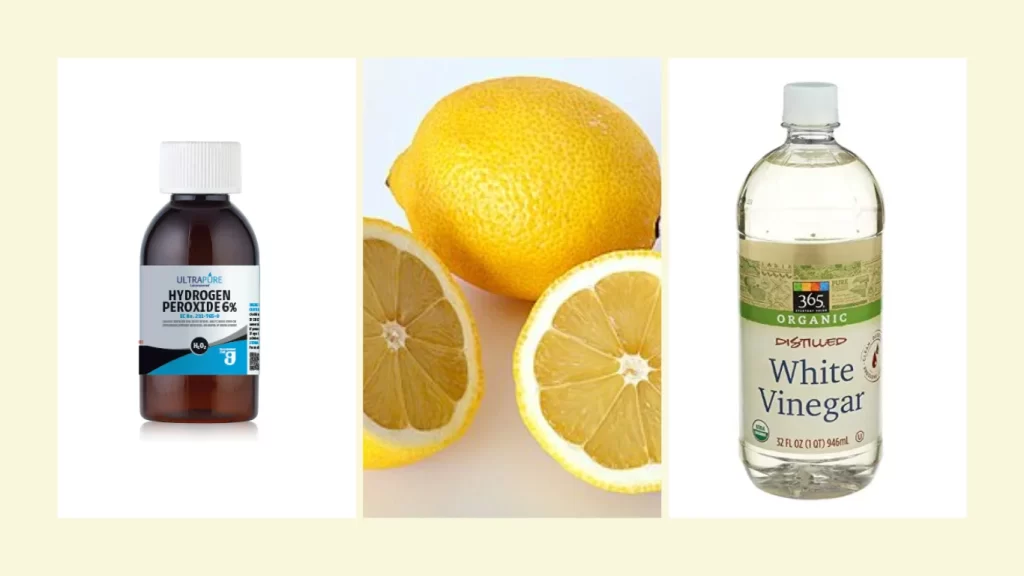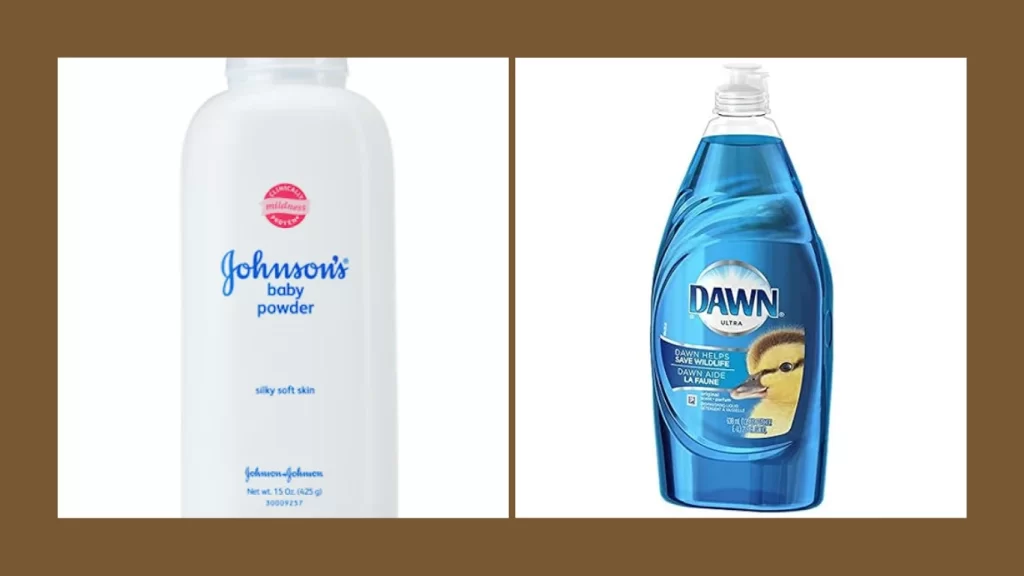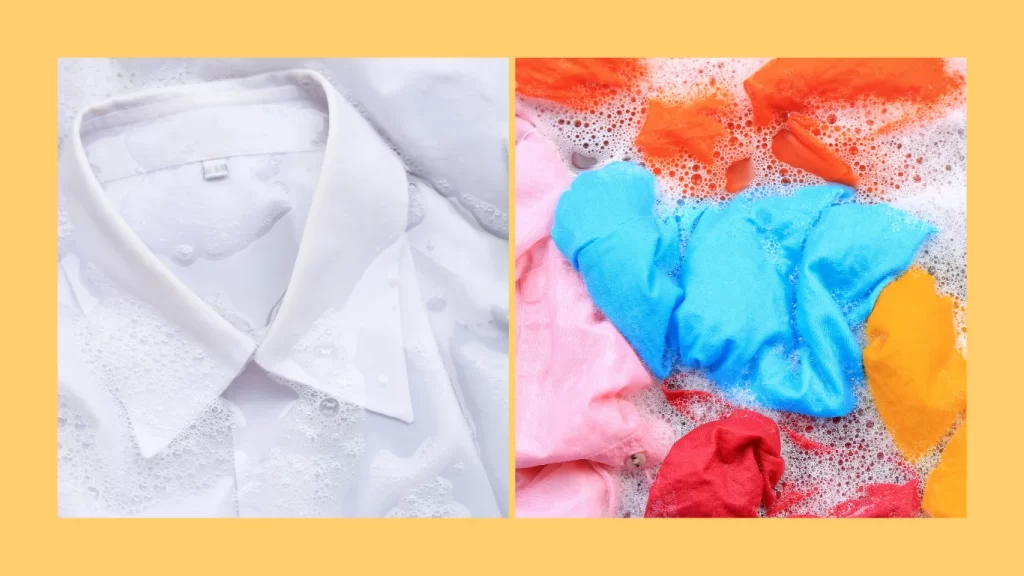Getting stubborn stains out of clothes can become an exhausting mission. Many stain removers are on the market in various forms, from powder to gel to spray. Throughout this article, we will take you out of the bubble of store-bought stain removers that contain harsh chemicals. Many household items and ingredients can work as natural stain removers, allowing you to avoid any the chemicals found in store-bought stain removers. Most of the time the natural stain removers for clothes work just as well or even better than the products found in the laundry aisle of your local supermarket.
Baking Soda
The carton of baking soda sitting in your cupboard for too long is a great laundry aid. Besides being an odour remover, baking soda helps improve detergent performance and soften fabrics. To incorporate baking soda into your laundry load, add ½ cups of the powder along with your detergent into the detergent compartment of your laundry machine. In order to get out strong odors or stains, make sure to soak the garments overnight in baking soda and water.
Lemon Juice
Lemon juice is the perfect stain remover for white clothes. The acetic acid in lemon juice is a natural bleacher. Therefore, if lemon juice is splattered onto coloured clothes, wash it off quickly to prevent discolouration.
Both fresh and bottled lemon juice will do the job. To use lemon juice in your laundry routine, add 1 cup into the washing machine with your white load. Use a combination of baking soda, with lemon juice and a touch of water for tougher stains. Aim for a pasty mixture. Scrub the paste over the stains, let it sit for 30 minutes, and wash to remove.
Distilled White Vinegar
Distilled white vinegar is a miracle worker for removing yellow underarm stains, mildew stains and even brightening clothes. Finishing off a load with 1 cup of distilled white vinegar will result in soft, fresh-smelling clothes. Additionally, vinegar can be added to the washing machine to clean and remove musty odours.
Hydrogen Peroxide

Hydrogen peroxide is an excellent substitute for chlorine bleach. This solution can be found in the medicine aisle of your local pharmacy. It is made of an oxidizing agent that works like bleach. Hydrogen peroxide essentially breaks down into water and oxygen, making it a much safer alternative.
Hydrogen peroxide is a great stain remover, helping remove dye stains, nail polish stains, and red wine stains. Add 1 cup to the washer drum to incorporate this into your laundry load.
To spot treat the stain, pour undiluted hydrogen peroxide on the stain and let it sit for 10 minutes before throwing it in the washer.
Borax
Borax is sodium, boron, oxygen, and water. It doesn’t contain toxic fumes, making it safe for the environment and clothes. Using borax for laundry boosts the performance of detergent. Many DIY laundry detergents include borax, which softens hard water, controls odour and removes stains.
To treat a stain, mix 1 tablespoon of borax with 2 tablespoons of water. Once you have formed a paste, rub it on the stain and let it sit for 30 minutes before washing.
Cornstarch, Talc or Chalk
Cornstarch, baby powder, or plain white chalk are all-natural treatments that help absorb oily stains. If cared for quickly, these powders act as a stain remover for oil or grease. Pour the powder onto the oil stain and let it sit for 10 minutes until it absorbs the oil, then brush away and wash.

Dish Soap
Dish Soap is effective on grease stains and other mild stains. To spot-treat stains, mix some dish soap with water and apply it to the stain. Let it sit for 10 minutes, then place it in the wash.
Tips on Stain Removal
Some essential stain removal tips can tremendously help one’s stain removal journey.

– To prevent stains from setting, work fast. Don’t give the stain time to soak into the fabric.
– Separate your colours and do loads separately. Whites should always be washed separately to keep the garments white and fresh-looking, and colours should be washed in another load to avoid colour transfer.
– To get the best results, scrape off any crumbs or residue from stains.
– Try to absorb any oil stains with talc or baby powder before putting it in the washing machine.
– Let the stain soak in the stain removal substance. Whatever substance you choose to use, make sure to soak the garment as long as you can. The longer you soak the garment, the easier the stain will be to remove.
Check out our Ultimate Laundry Guide.
Conclusion – Natural Stain Removers
Removing stains can be a never-ending cycle; however, once you have the right products and techniques, it’s as easy as 1 2 3. Throughout this natural stain remover article, we reviewed some of the most common household products that can be used as a stain remover for clothes. Some of the products we discussed, such as hydrogen peroxide and lemon juice, are an excellent substitute for chlorine bleach. Staying away from harsh stain remover spray and using more gentle, green, friendly products is excellent for one’s health and well-being. Many of the store-bought products contain harsh and toxic ingredients. Therefore, we hope this guide can help you opt for more environmental friendly stain removers.
Is vinegar or peroxide better for stains?
Vinegar and hydrogen peroxide work far differently. Vinegar is a general stain remover and cannot be used as a spot stain remover, whereas hydrogen peroxide has a bleaching effect on fabric and is best used on white or light-coloured clothes.
What is the best natural stain remover?
The best natural stain remover is distilled white vinegar or baking soda.
What is the most challenging stain to remove?
Red stains like ketchup, red wine, and blood are the most challenging to remove.
Additionally oily stains are also very difficult to remove.
Does the sun help remove stains from clothes?
The sun is an excellent natural way for removing stains. It may not work wonders for more severe stains, but it’s worth a try.





